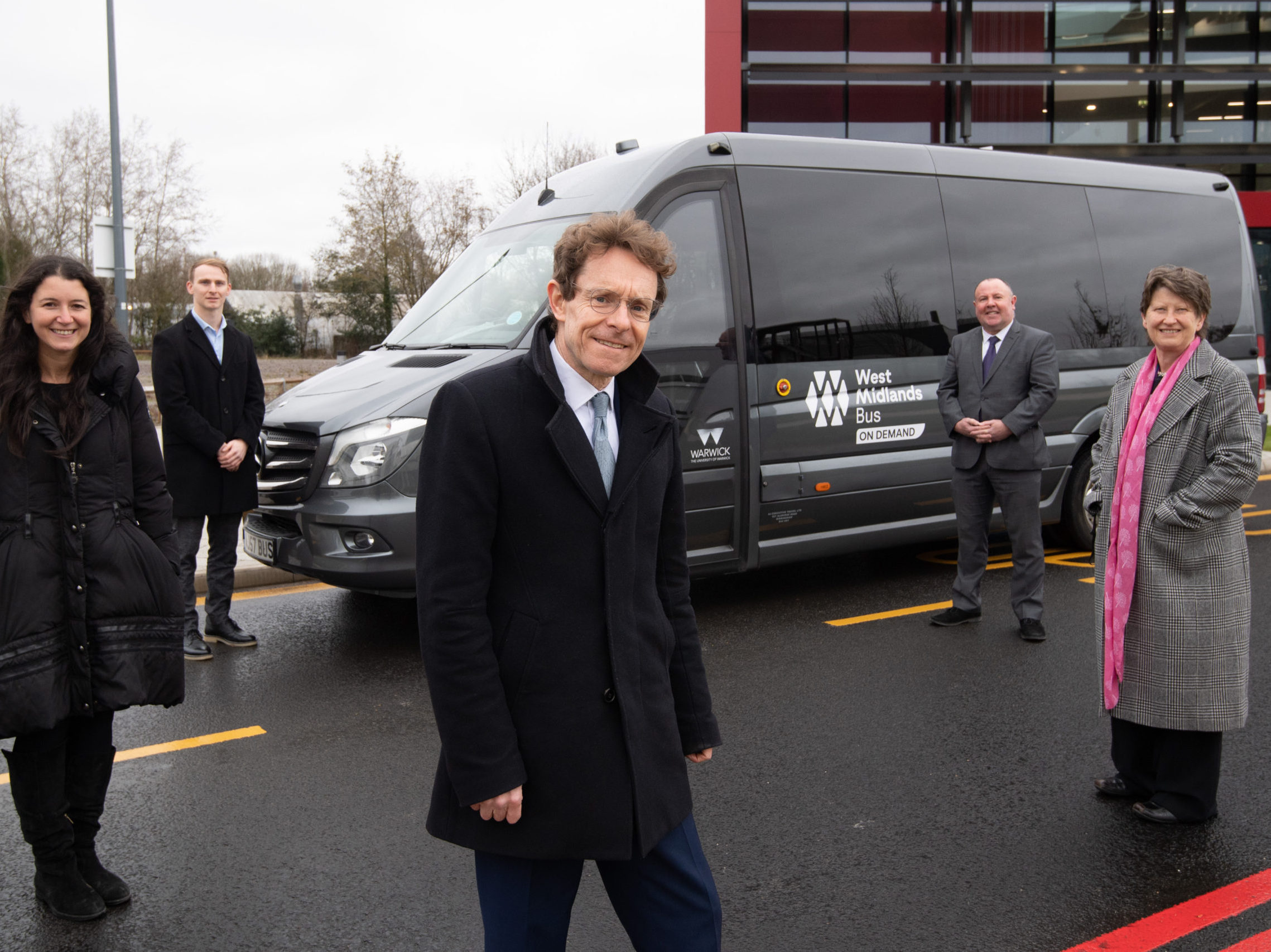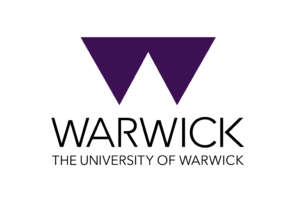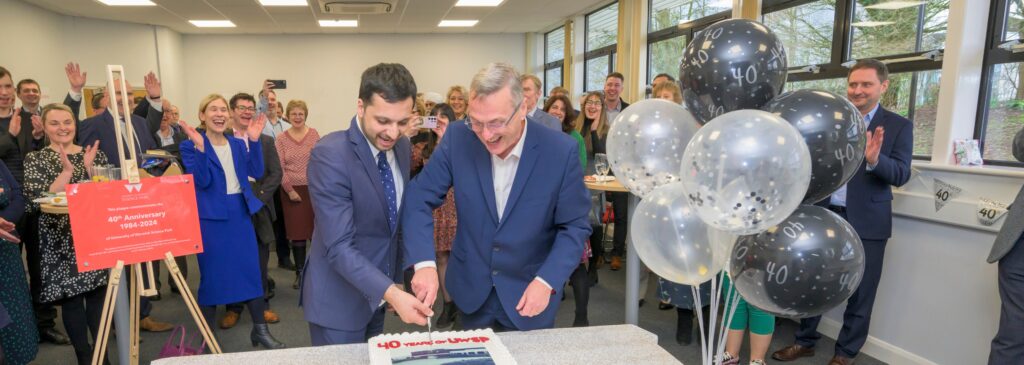
A new on-demand bus service is being launched at the University of Warwick promising staff, students and the local community convenient services to order.
The West Midlands On Demand service, starting in April, offers the convenience of a taxi but with the environmental benefits of a traditional bus service helping to reduce car use and traffic congestion on our streets.
Powered by an app to coordinate routes and journeys based on customer demand it will offer a pick up and drop off service in an area of travel. To book a journey, passengers download the “Bus On-Demand” app (powered by Via), which allows them to request a pick up from a virtual bus stop.
The service is being trialled for the first time in the region as part of the Future Mobility Showcase – a two-year partnership between Transport for West Midlands (TfWM), part of the West Midlands Combined Authority (WMCA) and the University of Warwick to pilot innovative transport modes and technology designed to reduce private car use.
Mayor of the West Midlands Andy Street, who chairs the WMCA, said: “This is a pioneering new type of bus services which uses the latest app technology to offer a bus where you want it and at the right time within the zone, rather than restricted to set routes and timetables. It is just the kind of innovation we in the West Midlands are famed for.
“We are piloting these new services for those commuting between the University of Warwick campuses – but if successful and sustainable we will look at expanding it to other areas across the West Midlands.”
The on-demand services are operated by leading public mobility companies Via and CoachScanner with funding from TfWM and the university.
Journeys will be booked through the Via’s mobile app. The advanced algorithms will enable multiple riders to seamlessly share the vehicle. The powerful technology will direct passengers to a nearby virtual bus stop within a short walking distance for pick up and drop off, allowing for quick and efficient shared trips without lengthy detours, or inconvenient fixed routes and schedules.
If an on-demand bus journey isn’t available, the app will provide details of alternative methods of public transport, along with costs – allowing the user to make informed choices in terms of both value for money and journey time. This on-demand service creates both a better user experience and can be more efficient than a fixed route.
The trial will explore how a demand-responsive service works in Coventry in a post-COVID-19 environment.
Success will be determined by it being a self-sustaining commercial service, offering car users a more sustainable mode of transport and public transport users greater flexibility. The initial route will operate between the University of Warwick campuses with the view of extending it as the trial progresses.
Coventry City Council are keen to support the roll out of the on-demand bus service at the University of Warwick and to understand the role of the service in the modal mix of public transport, and offer residents a direct travel option to a wider variety of potential destinations compared to traditional fixed route bus services.
Parvez Islam, director of transport and mobility for the University of Warwick, said: “Trialling new transport modes, such as DRT, on our campus and with our communities helps us to better understand how we might enable a greener, cleaner campus environment and reduce reliance on cars over time.
“As a leading education and research institution, it’s important we’re open to early testing of new ideas and innovations that may ultimately help to create a better world. Ever since we first opened our doors to students in 1965, our campus has been a place where the future lands early and we’re proud to be pointing the way ahead again with this initiative.”
Cllr Jim O’Boyle, cabinet member for jobs and regeneration at Coventry City Council said: “We have a real opportunity to test out and trial a number of transport options for the future. The city has innovation at its heart and this will be another opportunity to understand how transport solutions work in real situations.
“The coronavirus outbreak creates its own challenges but it’s important we continue to look at these types of schemes in more detail. The University of Warwick is an ideal location to test out this project.”
Following the two-year trial, the mobility showcase results will help to find the best solutions that work for our residents in reducing their carbon footprint and help them make more informed and environmentally friendly transport choices.
The West Midlands is home to the £22 million Future Transport Zone, set up to harness the latest technology and data to design and develop accessible and connected transport alternatives that are faster, cleaner and greener – contributing to achieving the #WM2041 ambition to reduce the region’s carbon footprint.
The safety of passengers and staff is top priority, so services will be operated in line with Government guidance on Covid 19.






